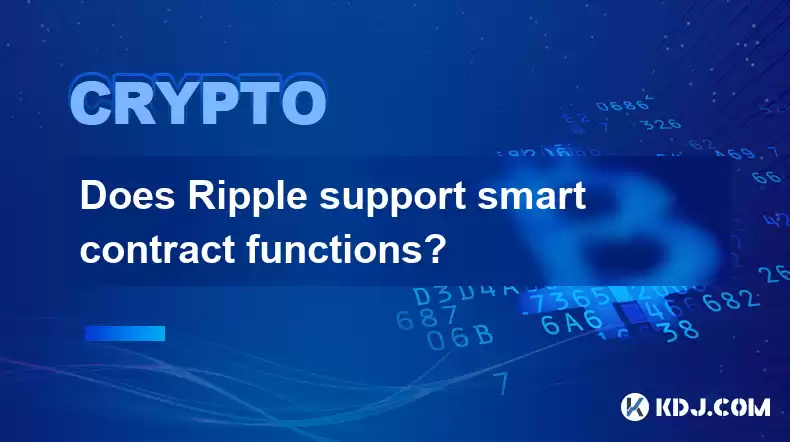-
 Bitcoin
Bitcoin $119100
-2.16% -
 Ethereum
Ethereum $4300
-0.31% -
 XRP
XRP $3.171
-2.99% -
 Tether USDt
Tether USDt $1.000
-0.01% -
 BNB
BNB $814.1
-1.33% -
 Solana
Solana $176.5
-4.67% -
 USDC
USDC $0.0000
0.00% -
 Dogecoin
Dogecoin $0.2267
-5.83% -
 TRON
TRON $0.3465
2.15% -
 Cardano
Cardano $0.7870
-4.98% -
 Chainlink
Chainlink $21.66
-2.27% -
 Hyperliquid
Hyperliquid $43.89
-4.62% -
 Stellar
Stellar $0.4414
-3.35% -
 Sui
Sui $3.707
-6.73% -
 Bitcoin Cash
Bitcoin Cash $599.1
3.73% -
 Hedera
Hedera $0.2504
-6.96% -
 Ethena USDe
Ethena USDe $1.001
-0.01% -
 Avalanche
Avalanche $23.21
-4.99% -
 Litecoin
Litecoin $121.1
-3.55% -
 Toncoin
Toncoin $3.415
0.45% -
 UNUS SED LEO
UNUS SED LEO $9.002
-1.24% -
 Shiba Inu
Shiba Inu $0.00001314
-5.43% -
 Uniswap
Uniswap $11.45
1.63% -
 Polkadot
Polkadot $3.926
-5.37% -
 Cronos
Cronos $0.1694
1.63% -
 Ethena
Ethena $0.8117
-2.35% -
 Dai
Dai $1.000
0.00% -
 Bitget Token
Bitget Token $4.422
-1.43% -
 Monero
Monero $264.2
-0.83% -
 Pepe
Pepe $0.00001137
-8.29%
Does Ripple support smart contract functions?
Ripple's XRP Ledger prioritizes speed and scalability over Turing-complete smart contracts; while lacking native support, it offers alternative mechanisms and third-party solutions to achieve similar functionalities, focusing on efficient payment processing.
Mar 11, 2025 at 10:25 am

Key Points:
- Ripple's XRP Ledger (XRPL) does not natively support smart contracts in the same way as Ethereum or Solana.
- While lacking Turing-completeness, XRPL offers functionalities that achieve similar outcomes through other mechanisms.
- Third-party solutions and advancements are attempting to bridge this gap and expand XRPL's capabilities.
- The focus on speed and scalability in XRPL's design has prioritized different functionalities over general-purpose smart contract execution.
Does Ripple Support Smart Contract Functions?
The short answer is: no, not in the traditional sense. Unlike Ethereum, which boasts a Turing-complete smart contract platform, Ripple's XRP Ledger (XRPL) doesn't natively support the execution of arbitrary code via smart contracts. This fundamental difference stems from the distinct design philosophies behind the two platforms. Ethereum prioritizes decentralization and programmability, while Ripple emphasizes speed, low transaction fees, and scalability for payments.
The XRPL’s architecture is optimized for fast and efficient transactions. This prioritization often comes at the cost of the complex functionalities offered by Turing-complete smart contracts. While the absence of smart contracts in the traditional sense might seem limiting, Ripple has chosen to focus on its strengths: rapid and cost-effective transactions ideal for cross-border payments.
This doesn't mean XRPL is completely devoid of programmability. The ledger allows for certain functionalities that mimic some aspects of smart contracts. These functionalities are implemented using features like the XRPL's built-in scripting capabilities and trust mechanisms. These features allow for more complex transaction logic, but they aren't as flexible or expansive as general-purpose smart contract platforms.
For example, escrow accounts on the XRPL allow for the conditional release of funds based on predefined conditions. This resembles a basic smart contract function, albeit with limitations on the complexity of those conditions. These conditions are usually time-based or rely on specific events confirmed on the ledger itself, not external data sources.
The inherent limitations of the XRPL's scripting language also restrict the possibilities of creating complex, decentralized applications (dApps) directly on the XRPL. Unlike the broad functionalities available on platforms like Ethereum, the XRPL's scripting is more targeted towards facilitating specific payment flows and trust mechanisms rather than creating fully functional decentralized applications.
Alternative Approaches and Future Developments:
Despite the absence of native smart contract support, the Ripple ecosystem is constantly evolving. Several projects are exploring ways to extend XRPL’s capabilities to better accommodate the demands for smart contract functionality.
Some of these approaches include:
- Developing new protocols or extensions on top of the XRPL: These protocols aim to create a layer of smart contract functionality without fundamentally altering the XRPL's core design. This would allow developers to build more complex applications while still leveraging the speed and efficiency of the underlying XRPL.
- Utilizing oracles: Oracles can bring external data onto the XRPL, allowing for more sophisticated conditional transactions. This could help bridge the gap between the XRPL's limited programmability and the needs of more complex smart contract applications.
- Improving the XRPL's scripting language: Future upgrades to the XRPL's built-in scripting capabilities could potentially expand the types of complex transactions that are possible. However, any such improvements must carefully balance added functionality with maintaining the XRPL’s core strengths.
It's important to note that these are ongoing developments and the extent to which they will successfully bring full smart contract functionality to the XRPL remains to be seen. The existing solutions are not a direct replacement for the Turing-completeness found in platforms like Ethereum.
Comparing Ripple with Smart Contract Platforms:
A key difference lies in the design philosophy. Ethereum, for example, embraces Turing-completeness, allowing for highly complex and versatile smart contracts. This versatility comes at the cost of slower transaction speeds and higher fees, sometimes significantly impacting scalability. Ripple, conversely, prioritizes speed and low fees, sacrificing the extensive programmability of smart contracts. The choice between the two depends on the specific application and its priorities.
For applications requiring complex, self-executing agreements, Ethereum or other similar platforms might be a better choice. For applications that prioritize fast, low-cost transactions, such as cross-border payments, the XRPL’s design may be more suitable, even without native smart contract support. Each platform caters to different needs within the cryptocurrency landscape.
Frequently Asked Questions:
Q: Can I build decentralized applications (dApps) on the XRP Ledger?
A: While you can't build dApps in the same way as on Ethereum, you can create applications that leverage the XRPL's functionalities, such as its escrow and payment capabilities. The complexity of these applications is limited by the XRPL's current scripting capabilities.
Q: What are the advantages of not having smart contracts on the XRP Ledger?
A: The absence of smart contracts contributes to the XRP Ledger's speed and scalability. This makes it particularly well-suited for high-volume transaction processing, such as cross-border payments. The simplified design reduces complexity and improves transaction finality.
Q: Are there any plans for Ripple to add full smart contract functionality to the XRP Ledger?
A: While there are no official announcements about adding full Turing-complete smart contract functionality, Ripple continues to explore ways to enhance the XRPL's capabilities. This includes exploring improvements to its scripting language and integrating third-party solutions. The focus remains on balancing added functionality with maintaining the platform's speed and scalability.
Q: How does Ripple's approach to programmability compare to other platforms like Solana or Cardano?
A: Solana and Cardano both support smart contracts with varying degrees of complexity and functionality. While Solana prioritizes speed and scalability, similar to Ripple, it offers full smart contract support. Cardano focuses on formal verification and security, but also supports smart contracts. Ripple's approach is distinct, prioritizing speed and efficiency for payments over general-purpose smart contract execution.
Disclaimer:info@kdj.com
The information provided is not trading advice. kdj.com does not assume any responsibility for any investments made based on the information provided in this article. Cryptocurrencies are highly volatile and it is highly recommended that you invest with caution after thorough research!
If you believe that the content used on this website infringes your copyright, please contact us immediately (info@kdj.com) and we will delete it promptly.
- Dogecoin, Presale, Surge: Riding the Meme Coin Wave
- 2025-08-12 11:10:12
- Dogecoin, Tron, and the ROI Reality Check: What's a Crypto Investor to Do?
- 2025-08-12 11:15:12
- Ethereum Layer-2 Scaling Competition Heats Up as ETH Breaks $4K
- 2025-08-12 10:30:12
- China Regulation, Stablecoins, and BNB Presale: Navigating the Crypto Landscape
- 2025-08-12 11:30:12
- Meme Coins, Investment, and Token Burns: What's Hot in 2025?
- 2025-08-12 10:30:12
- BlockDAG, Chainlink, Hedera: The Cryptos Enterprises are Eyeing
- 2025-08-12 09:30:12
Related knowledge

How to purchase Aragon (ANT)?
Aug 09,2025 at 11:56pm
Understanding Aragon (ANT) and Its PurposeAragon (ANT) is a decentralized governance token that powers the Aragon Network, a platform built on the Eth...

Where to trade Band Protocol (BAND)?
Aug 10,2025 at 11:36pm
Understanding the Role of Private Keys in Cryptocurrency WalletsIn the world of cryptocurrency, a private key is one of the most critical components o...

What is the most secure way to buy Ocean Protocol (OCEAN)?
Aug 10,2025 at 01:01pm
Understanding Ocean Protocol (OCEAN) and Its EcosystemOcean Protocol (OCEAN) is a decentralized data exchange platform built on blockchain technology,...

Where can I buy UMA (UMA)?
Aug 07,2025 at 06:42pm
Understanding UMA and Its Role in Decentralized FinanceUMA (Universal Market Access) is an Ethereum-based decentralized finance (DeFi) protocol design...

How to buy Storj (STORJ) tokens?
Aug 09,2025 at 07:28am
Understanding Storj (STORJ) and Its Role in Decentralized StorageStorj is a decentralized cloud storage platform that leverages blockchain technology ...

Where to find the best price for Audius (AUDIO)?
Aug 11,2025 at 04:01pm
Understanding the Basics of Ethereum StakingEthereum staking refers to the process of locking up ETH tokens to support the security and operations of ...

How to purchase Aragon (ANT)?
Aug 09,2025 at 11:56pm
Understanding Aragon (ANT) and Its PurposeAragon (ANT) is a decentralized governance token that powers the Aragon Network, a platform built on the Eth...

Where to trade Band Protocol (BAND)?
Aug 10,2025 at 11:36pm
Understanding the Role of Private Keys in Cryptocurrency WalletsIn the world of cryptocurrency, a private key is one of the most critical components o...

What is the most secure way to buy Ocean Protocol (OCEAN)?
Aug 10,2025 at 01:01pm
Understanding Ocean Protocol (OCEAN) and Its EcosystemOcean Protocol (OCEAN) is a decentralized data exchange platform built on blockchain technology,...

Where can I buy UMA (UMA)?
Aug 07,2025 at 06:42pm
Understanding UMA and Its Role in Decentralized FinanceUMA (Universal Market Access) is an Ethereum-based decentralized finance (DeFi) protocol design...

How to buy Storj (STORJ) tokens?
Aug 09,2025 at 07:28am
Understanding Storj (STORJ) and Its Role in Decentralized StorageStorj is a decentralized cloud storage platform that leverages blockchain technology ...

Where to find the best price for Audius (AUDIO)?
Aug 11,2025 at 04:01pm
Understanding the Basics of Ethereum StakingEthereum staking refers to the process of locking up ETH tokens to support the security and operations of ...
See all articles

























































































